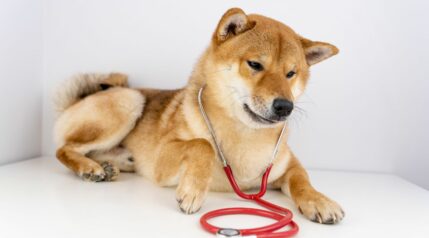Olives. You either love them or hate them. It might be tempting to see what your dog makes of them, too, so you’ll be pleased to know that olives are not poisonous to our furry friends. But there are still a few things to consider.
This small green or black fruit is traditionally used in a variety of Mediterranean dishes, as well as being served as a bar snack and garnish in some alcoholic drinks. Many olives are seasoned, stuffed, or served in oils, giving them different savory flavors, but this is where problems creep in for our canine companions.
Let’s explore olives in more detail, including any potential health benefits, as well as safety risks to your pet.
Are Olives Toxic For Dogs?
The good news is that plain, unseasoned olives are not toxic to dogs. You can safely give your dog olives by removing the pits and only offering them as an occasional treat.
Any fruit or vegetable has the potential to cause tummy troubles if fed excessively. As a guideline, olives should make up no more than 10% of your dog’s daily rations to avoid dietary imbalances and gastrointestinal upset, such as vomiting and diarrhea.
It’s worth bearing in mind also that most olives go through a de-bittering process to make them more palatable. This usually involves soaking them in salt water (brine), which means most olives contain high sodium levels. Too much sodium can cause digestive problems as well as potential toxicity, so this is another good reason for olives only to be given occasionally.
Are Olives Good For Dogs?

Though we often consider them to be savory food, they are actually a type of stone fruit and are related to cherries, mangos, and peaches. Olives are either green or black depending on when they are picked, with green olives being unripe and black ones fully ripened.
The main thing olives are used for commercially is their oil. The healthy fats in this fruit are extracted to make olive oil, a staple in Mediterranean cooking. It is rich in oleic acid, a monounsaturated fatty acid, which is linked to several health benefits. This includes decreasing the risk of heart disease, having natural anti-inflammatory properties, and possibly helping to fight cancer.
Other nutrients contained in olives include:
Vitamin E
This antioxidant helps mop up cell-damaging free radicals, reducing cancer risks and inflammation. So high-fat fruits like olives can help to reduce oxidative stress in the body.
Vitamin A
Olives are a source of vitamin A, which helps with a healthy immune system and good eyesight.
Iron
Black olives contain a good source of iron, which is essential to ensure healthy blood cells. These are responsible for transporting oxygen around the body. A lack of good-quality red blood cells can lead to anemia.
Copper
Olives contain copper, an essential mineral that helps with a variety of processes in the body, including energy production, maintaining a healthy nervous system, and supporting iron to form healthy red blood cells.
Calcium
Olives contain a relatively large amount of calcium for their small size. Calcium is an essential nutrient that is important for healthy bones, teeth, and nerve functions.
Sodium
Sodium is an essential nutrient that helps with muscle and nerve function. The processing of olives in brine water means that many contain high amounts of sodium.
Fiber
Fruit and vegetables like olives contain a good source of insoluble fiber. This helps to aid digestion and prevent constipation. It also helps us to feel fuller for longer, which can help when watching our weight.
So, the health benefits for people are clear, and it is possible that these could be true for our pets, too, though further studies are needed. Remember that most dogs receive all the nutrients they need from a good quality commercial diet and don’t usually require anything additional from other sources. However, a little nutrient boost now and then is unlikely to do them any harm.
When Are Olives Bad For Dogs?

Although this particular fruit is not poisonous to dogs, it could still cause problems in other ways.
The main issue with our pet eating too many olives would be digestive upset. Dogs are omnivores and will often happily eat fruit, vegetables, and cereals, as well as meat. However, an imbalanced diet could lead to sudden changes in gut bacteria, causing vomiting and diarrhea. It may be best to initially try your dog with a very small amount of something new before offering any more, particularly in dogs with sensitive tummies
In general, you should aim to stick to your dog’s normal commercial diet as much as possible, with olives being reserved as an occasional treat. There are some other scenarios where olives could be bad for dogs. Let’s explore each of these:
Olives With Pits Still In Them
Most store-bought olives have the pits removed, but it’s always worth checking before you give your dog one. Stone fruits like olives contain a very hard seed (or pit) in the middle of them. If you or your dog were to bite down on a pit, it could cause trauma to the teeth. A painful fractured tooth is no fun for anyone.
Pits can also be hazardous if your dog accidentally chokes on them. This is more likely to occur in dogs with compromised airways, such as brachycephalic breeds (flat-faced), small breeds, or very young puppies.
Olives In Oil
Olives often come coated in oil. If your dog eats a large volume of oil, then this high amount of concentrated fat could cause digestive upset. In more serious cases, it could even trigger an episode of pancreatitis, particularly in breeds that are more susceptible to this condition, such as Cocker Spaniels and Poodles.
The extra calories from this oil could also lead to undesirable weight gain over time. Some oils can contain flavorings such as chili, which, while not toxic to dogs, could cause an unpleasant bout of vomiting or diarrhea.
Olives Prepared With Garlic
Olives that come seasoned with garlic could be dangerous to dogs if eaten in high volumes. Garlic is a member of the allium group of plants, to which onions and leeks belong. They all have the potential to cause hemolytic anemia through oxidative damage to the red blood cells. This makes the red blood cells break more easily, leading to a reduction in the number of healthy ones circulating. Symptoms include weakness, lethargy, pale gums, and an elevated heart rate.
Olives Served In Alcohol
Alcohol is not good for dogs, as they are much more susceptible to its effects than we are. In mild doses, alcohol (or ethanol) has similar effects in dogs to those that are seen in people, including drowsiness and lethargy. In high volumes, you may see alcohol poisoning, which is much more serious. So, keep your olive-garnished cocktails out of reach of your pet.
Stuffed Olives
Olives can come stuffed with ingredients like feta cheese, blue cheese, or anchovies. All of these have the potential to cause stomach upsets, as well as add additional calories to your pet’s daily intake. Stick to plain, unseasoned olives instead.
Olives In Other Dishes
Olives crop up in all sorts of foods, like pizzas, paellas, and focaccia bread, to name a few. You shouldn’t be feeding your dog these items. They contain little in the way of useful nutrition for your pet and could lead to weight gain. Some of these dishes could also contain toxic ingredients like onions and garlic.
Frequently Asked Questions
What Happens If My Dog Eats Olives?
Your dog should be fine if he eats one or two plain, unseasoned olives, as they are not toxic. However, if he consumes a large quantity, this could lead to a stomach upset. Olives that contain extra ingredients such as garlic, cheese, or chili pepper oil could cause more problems, so phone your vet for advice.
How Often Should I Feed My Dog Olives?
Olives should only be given as an occasional treat to your pet. Make sure that they make up no more than 10% of your dog’s daily rations. Some dogs may not even like olives, so don’t force them to eat them if they’re not into it.
Can Dogs Eat Olive Oil?
Olive oil is not toxic to dogs so they can consume small amounts without issue. Try not to overdo it, though, as high-fat levels can cause weight gain, tummy troubles, or even pancreatitis – undoing any potential health benefits.
Final Thoughts
Yes, plain unseasoned olives are safe for your dog as an occasional treat. As with any fruit or vegetable, you should only feed them to your pet in moderate amounts to avoid a dietary imbalance or tummy upsets.
Just like people, some dogs will like olives, whereas others may hate them. Never force your pet to eat something he doesn’t like, especially as he will get all his essential nutrients from a good quality commercial diet.
If you have any concerns about your dog after he has eaten olives or if he has consumed some that come alongside toxic ingredients, then make sure you call your veterinarian for advice.





